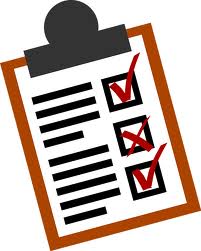 When applying for any type of loan or mortgage, one of the important factors a financial institution will look at is your credit score. These credit checks are necessary as they give that financial institution better insight into the level of risk you may pose for them in a business relationship. This is no longer a time when people get loans from banks they have had personal relationships with for a long period of time. Although not a definite benchmark, your credit score is an indicator of your ability to pay back that loan.
When applying for any type of loan or mortgage, one of the important factors a financial institution will look at is your credit score. These credit checks are necessary as they give that financial institution better insight into the level of risk you may pose for them in a business relationship. This is no longer a time when people get loans from banks they have had personal relationships with for a long period of time. Although not a definite benchmark, your credit score is an indicator of your ability to pay back that loan.
While it might seem that a credit score is number you have no control over, the fact is there are several things to consider. The first of which is how the number of credit checks you apply for affect your score. There are two types of credit inquiries, which is important to know since only one of those will negatively affect your score. That type is known as a hard inquiry, due to how it involves you initiating an application for credit. This is done for potential lenders or financial institutions and is necessary when you are applying for an auto loan, credit card or mortgage. On the other side of the fence are soft inquiries, which don’t affect your score in any way. This type of inquiry is not initiated by you, nor does it involve you applying for credit. Soft inquiries are mostly credit checks that have been requested by employers or potential landlords. Basically from people/institutions that are entering into business with you and want to verify you are who you say you are.
Hard inquiries stay on your credit record, and can lower your score by about five points for a few months. Those few points may not seem much, but if you have several pulls then it might drag your score from something considered above average to just good. See below for the categories of credit scores and what your number means:
- Excellent: 730 and Higher
- Above Average: 700-729
- Good: 670-699
- Below Average: 585-669
- Poor: Less than 585
Credit Scores aren’t an exact number, each bank/lender uses various scoring models to grant you credit of any sort. What is important to score: payment history, credit utilization (30% of balance), new credit and derogatory items including late payments, collections, judgments and liens. Integrity Financial loan specialists can give you all of the facts about the mortgage options you qualify for and help you understand your credit score. Give us a call today at 1-877-760-9854 to find out more information.









